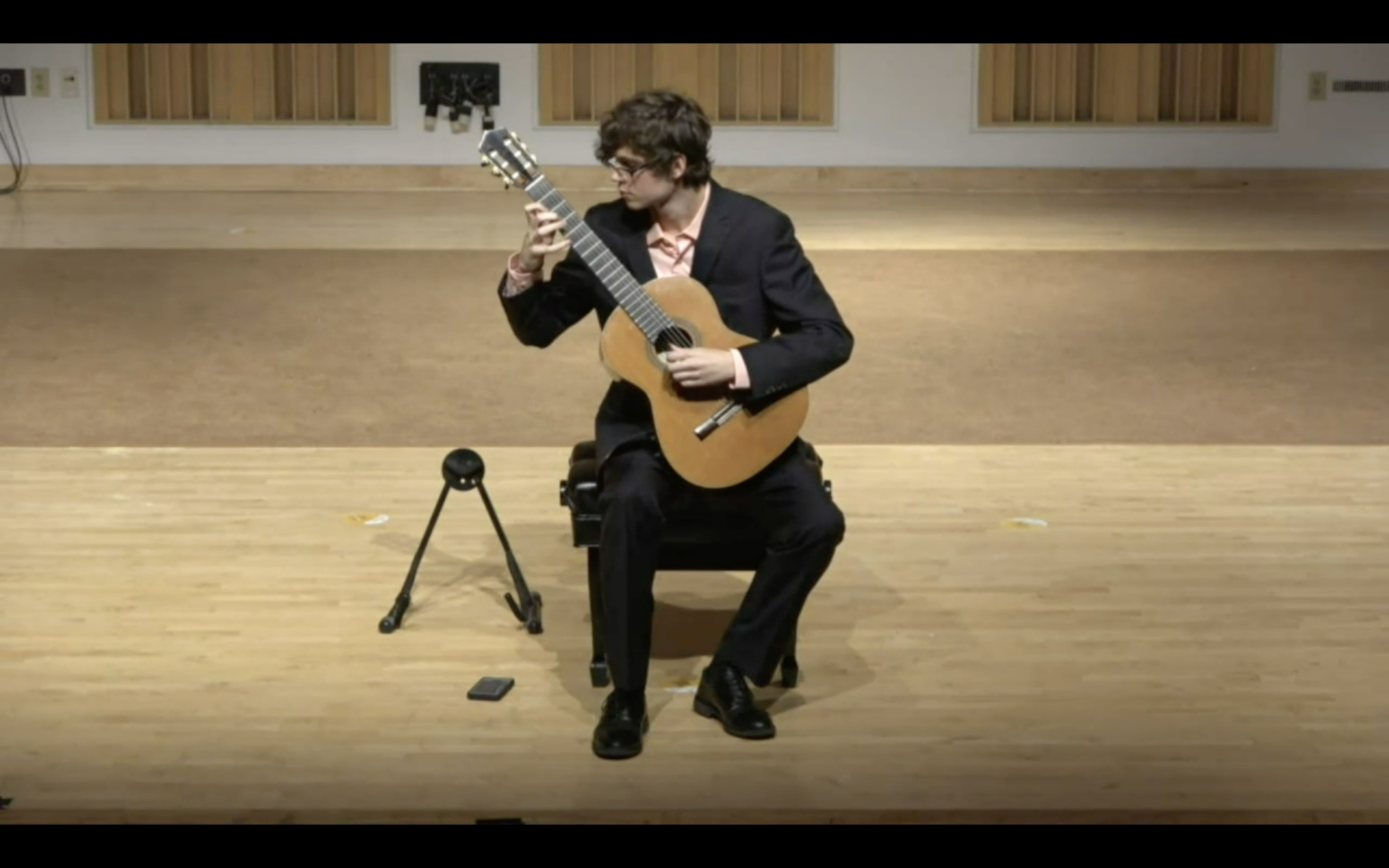Graduate Ambassadors: How I prepare for a classical guitar recital
By Graduate Ambassador Benjamin Chapman, master’s student in music

To earn my Master of Music in classical guitar performance, I am required to perform a graduate recital, consisting of fifty minutes of memorized music. Preparing for a recital is a laborious process, especially a recital for classical guitar. In some ways, each piece a classical guitarist undertakes requires a “re-learning” of the instrument. Arguably, this is because of the variety of separate and distinct muscle movements, which are unique to each piece. For example, the plucking or rosette hand (the rosette being the decorative pattern encircling the sound hole) and the fingerboard hand (the hand that presses the strings against the frets) are occupied with completely different tasks and yet must be coordinated to create musical phrasing. The left hand in particular is often required to make movements, which are in no way aligned with the timing of the music.
Watch: Wayne State University Department of Music student recitals 2022
The guitar is also capable of playing the same note on multiple positions on the neck. For instance, the note E4 can be found on all six strings, albeit, on a different position for each string. As a result, any given classical guitar piece can be played in many ways, and it falls to the performer to choose a fingering that is most appropriate. Each classical guitar piece, then, poses special challenges for muscle coordination and fingerboard positioning.
Because of the classical guitar’s demanding nature, it is necessary to memorize and refine repertoire far in advance of the performance. Jason Vieaux, an accomplished, professional classical guitarist, will work on a given piece for around a year before taking it to the stage. Roughly following his model, I plan to memorize my repertoire by the summer of 2024, in anticipation of my recital, which I will give in the winter of 2025.
Watch: Master of Music student plays a classical guitar piece
The classical guitar is primarily a solo instrument and, consequently, has the potential to be isolating; however, preparing for my recital has allowed me to engage with my church, Bethany Pentecost Tabernacle, through practice performances. I also perform for the Classical Guitar Society of Michigan, both as a soloist and as a member of the Detroit Guitar Trio, a group consisting of Wayne State University classical guitar faculty Scott Walter, Suzuki guitar teacher Anthony DiMambro, and myself. We in the recently formed Detroit Guitar Trio plan to broaden our community engagement, by sharing classical guitar music, beyond the CGSM. Consistent performance practice is essential for my recital preparation, and it gives me the opportunity to interact with communities beyond WSU’s classrooms.